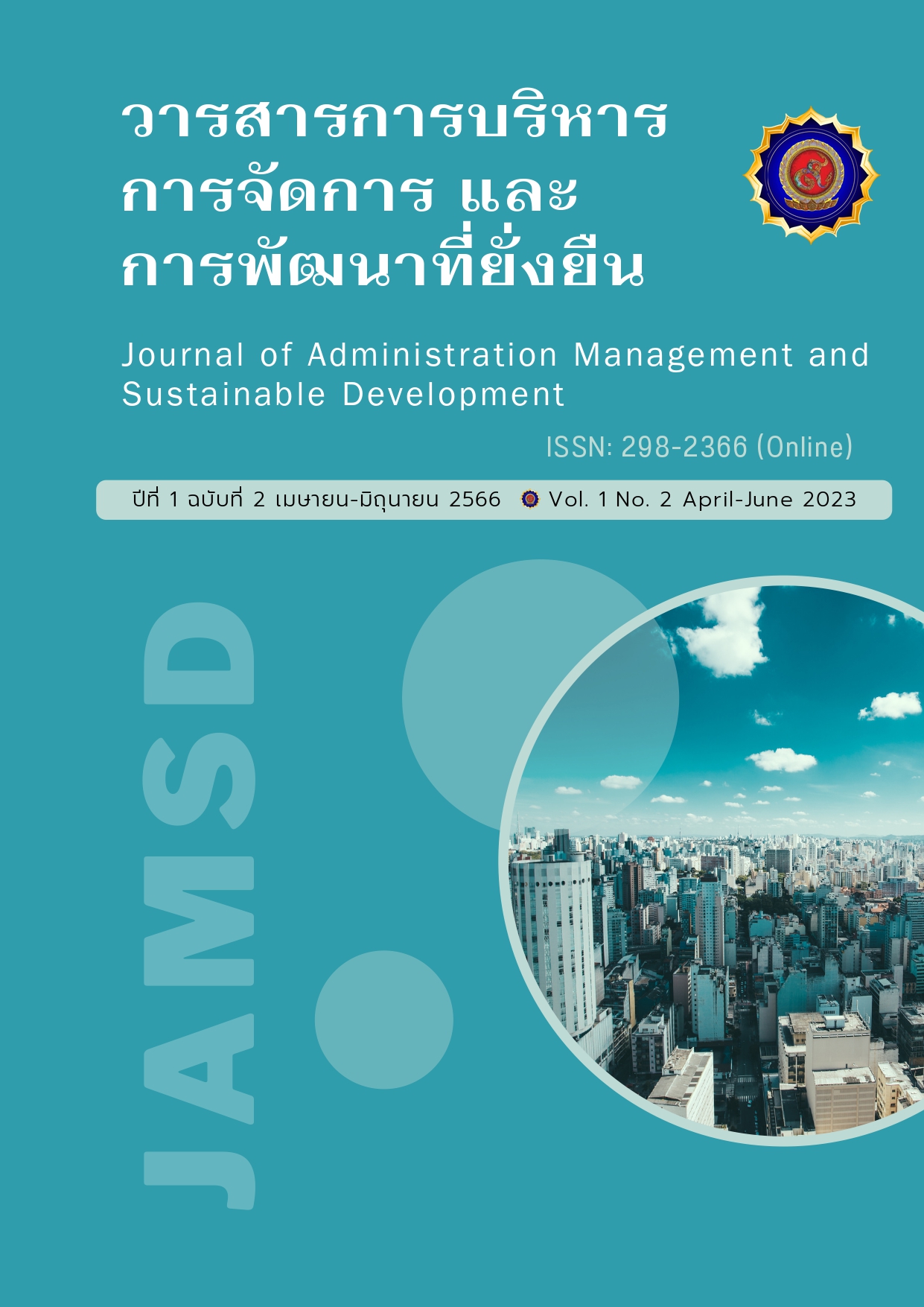Palang Pracharath Party's campaign policy: State welfare card
Keywords:
State welfare card, Palang Pracharat Party, Populist policyAbstract
State welfare card or "poor person's card" under the Pracharat Welfare Project It is a measure to help people with low incomes. During the government period with General Prayut Chan-o-cha holding the position of Prime Minister Can be used to reduce the cost of consumer goods, services, and travel expenses. It has been criticized as being “Populist policy” that the government during the National Council for Peace and Order (NCPO) era want to draw popular votes from the people to prepare "Inheriting power" Gen. Prawit Wongsuwan, Deputy Prime Minister As the leader of the Palang Pracharat Party Press conference to reveal the main policies of the party that will be used in the 2023 election campaign, which this policy is a measure to alleviate the cost of living, increase financial assistance for the disabled, increase financial aid for farmers, increase financial support for children's parents, increase financial aid for state welfare card holders by public opinion regarding increasing financial assistance to those holding "State Welfare Card" found that the majority of people 80.84 percent said they agreed because people with low incomes would be able to use the money to pay for living expenses. Therefore, in this issue it will be pointed out that the government welfare card policy is consistent with sustainable development. The concept of sustainable development has been in existence in the world for more than 40 years. In Thailand, the concept of sustainable development It is a concept within the framework of the Sufficiency Economy Philosophy. Emphasis on the middle path covering 3 dimensions, namely the economic dimension, social dimension and environmental dimension.
References
กรมสรรพสามิต. (2562). ทำไมรัฐบาลจึงต้องเข้ามากระตุ้นเศรษฐกิจ. สืบค้น 11 มิถุนายน 2566 จาก https://www.excise.go.th/region1/Data_warehouse/KNOW_REGION12019/UATUCM369167
บีบีซี. (2566). บัตรประชารัฐ: 5 ปี “บัตรคนจน” ในวันที่ พปชร. หาเสียงเพิ่มเงินเป็น 700 บาท. สืบค้น 11 มิถุนายน 2566 จาก https://www.bbc.com/thai/articles/cw8gxg7qn46o.
ฐิติโชติ จารุโศภิตกุล. (2561). ผลกระทบของการใช้บัตรสวัสดิการแห่งรัฐต่อประชาชน : กรณีศึกษาอำเภอเมืองตรัง และอำเภอกันตัง จังหวัดตรัง. คณะพาณิชยศาสตร์และการจัดการ มหาวิทยาลัยสงขลานครินทร์ วิทยาเขตตรัง.
ธีรศิลป์ กันธา. (2564). บัตรสวัสดิการแห่งรัฐกับการพัฒนาที่ยั่งยืน. รายงานสืบเนื่องจากการประชุมวิชาการระดับชาติครั้งที่ 5. สถาบันวิจัยและพัฒนา มหาวิทยาลัยราชภัฏกำแพงเพชร.
นิด้าโพล. (2566). บัตรสวัสดิการแห่งรัฐกับการกระตุ้นเศรษฐกิจไทย ? สืบค้น 11 มิถุนายน 2566 จาก https://nidapoll.nida.ac.th/survey_detail?survey_id=153.
นันทพันธ์ คดคง. (2564). นโยบายสาธารณะสำหรับผู้มีรายได้น้อยผ่านบัตรสวัสดิการแห่งรัฐสู่การพัฒนาอย่างยั่งยืน. ปรัชญาดุษฎีบัณฑิต สาขาวิชารัฐประศาสนศาสตร์ วิทยาลัยการจัดการและพัฒนาท้องถิ่น มหาวิทยาลัยราชภัฏพิบูลสงคราม.
วิชาญ ทรายอ่อน. (2560). โครงการลงทะเบียนเพื่อสวัสดิการแห่งรัฐ. สืบค้น 11 มิถุนายน 2566 จาก http://library2.parliament.go.th/ebook/content-issue/2560/hi2560-014.pdf.
วีระวัฒน์ ภัทรศักดิ์กำจร. (2564). ปัญหากระบวนการกาหนดนโยบายบัตรสวัสดิการแห่งรัฐ. กรุงเทพฯ: คณะเศรษฐศาสตร์ มหาวิทยาลัยธรรมศาสตร์.
สมเกียรติ ตั้งกิจวานิชย์ และคุปต์ พันธ์หินกอง. (2553). เศรษฐศาสตร์การเมืองของระบบสวัสดิการใน
การสัมมนาวิชาการประจำปี 2553 "การลดความเหลื่อมล้ำและสร้างโอกาสทางเศรษฐกิจ". กรุงเทพฯ: สถาบันวิจัยเพื่อการพัฒนาประเทศไทย.
สันติ ถิรพัฒน์ เเละวิมุต วานิชเจริญธรรม. (2558). การประเมินผลกระทบของโครงการบัตรสินเชื่อเกษตรกรเบื้องต้น (รายงานการวิจัย). กรุงเทพฯ: จุฬาลงกรณ์มหาวิทยาลัย.
อรรถสิทธิ์ พานแก้ว. (2561). บัตรสวัสดิการแห่งรัฐ. สืบค้น 11 มิถุนายน 2566 จาก http://wiki.kpi.ac.th/index.php?title=บัตรสวัสดิการแห่งรัฐ.
Khemani, S. (2015). Buying Votes Versus Supplying Public Services: Political Incentives to
Under-Invest in Pro-Poor Policies. Journal of Development Economics, 117(c), 84-83.






